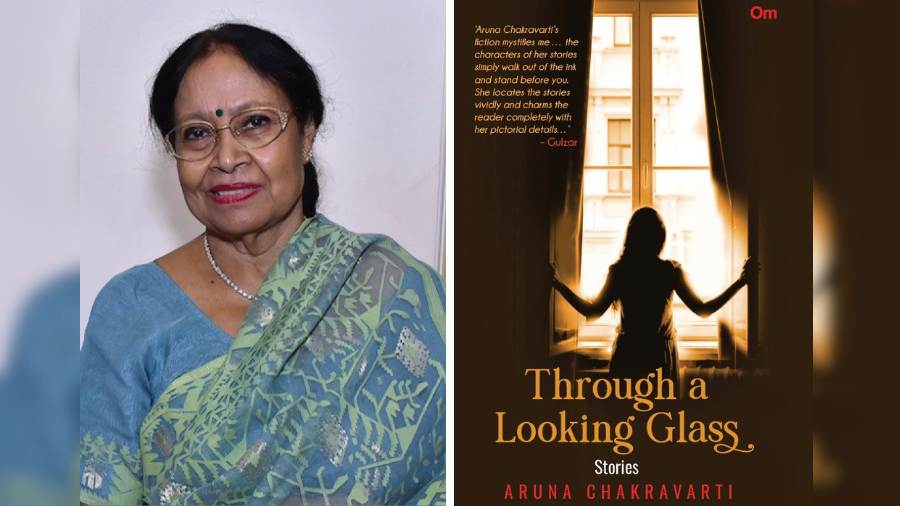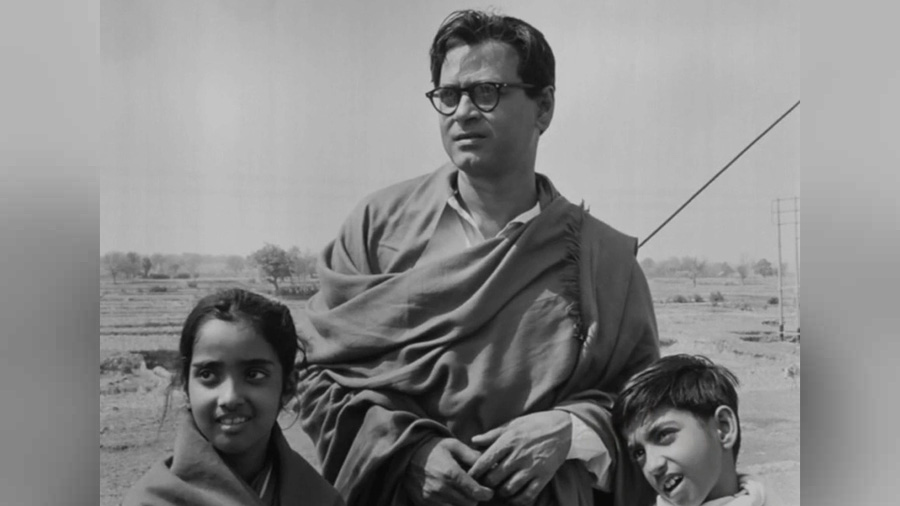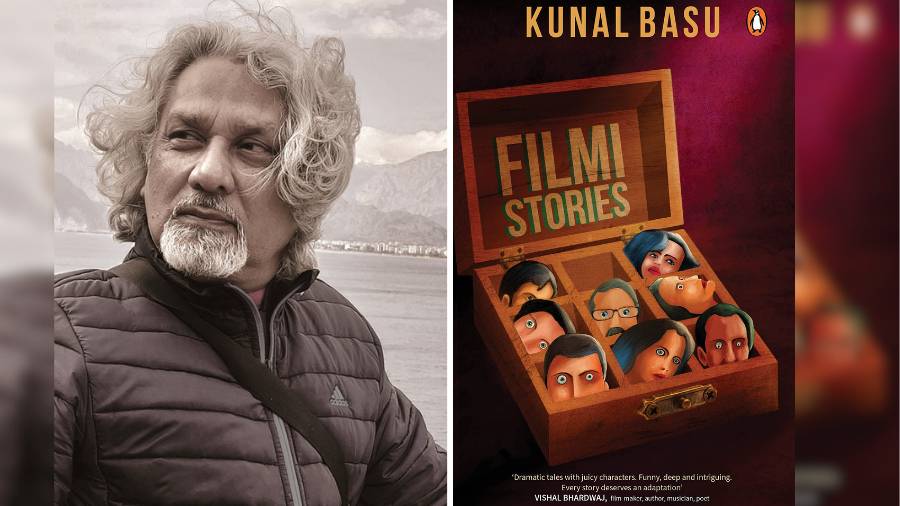Writer and translator Aruna Chakravarti demonstrates her unique skills as a story-teller in her collection of stories, Through a Looking Glass (published by Om Books International). She captures brilliantly the untold miseries of women, their sufferings, nuances of their changed situations, and their transgressions of sexual, societal and geographical boundaries in reinventing themselves. Chakravarti always shows a certain economy of expression and representation in the range of oppression that women experience and their continued vulnerability within patriarchal structures, even after they find their identities.
In the cover story, Through a Looking Glass, the protagonist, 99-year-old Promoda Sundari Das, is lying in a semi-comatose condition with flashes of clarity in her son Nikhil’s house in Hounslow. The ornamental mirror hung on the wall of her room literally and metaphorically captures reality and its refractive hues from the past. In the mirror, Promoda Sundari sees the garden, the pear tree… before she drifts away. She hears voices of Bamun-di, the Brahmin widow (who is also her mother), who cooked in Raja babu’s (Babamoshai) royal kitchen.
Vignettes from the present and a “dead and buried past” merge into a crystallising moment of self-awareness for Promoda Sundari. She sees two faces, one from the past and the other “seen through a looking glass…!” This is when she realises that Babamoshai is her biological father. Nikhil, her own son, looks strikingly like Babamoshai when a false moustache (the end of her long plait) is placed on him. “Babamoshai, she whispered, her eyes fixed on her son.”
There are two powerful untold journeys of Bamun-di and Promoda Sundari that are catapulted to the forefront. Promoda Sundari may have been married to a lowly Shudra, Hori, but she has royal blood coursing through her veins from a “powerful source” seen best in the way she raises her head regally “on the pillow, the chin in the air” once this self-realisation dawns. Similarly, Bamun-di might have been a cook in the royal kitchen, but social and sexual boundaries had been transgressed in her relations with Raja babu. There are subterranean currents pushing against the main narrative that makes the story complex.
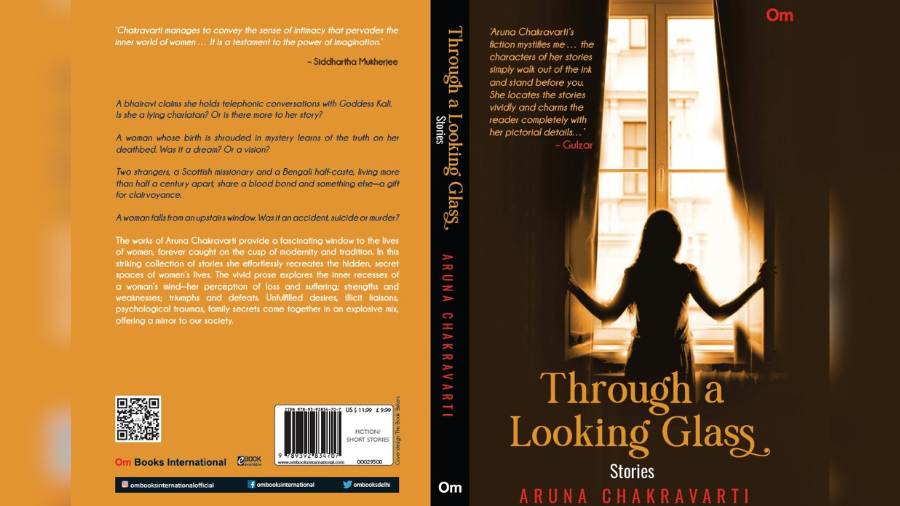
‘The mirror in Chakravarti’s short stories becomes the prism through which the past and present are refracted from different directions and unequal distances’
Mirror as a prism
Chakravarti uses multiple mirrors through which the characters in the short stories — mainly women — find self-realisation. This kind of coalescing of the past and the present through a metaphoric mirror is also seen in Perceptions. When Bulu, who is an author, visits the home of her childhood friend, Khukurani, she sees a photograph of Khukurani as a child on the bookcase. She suddenly realises that the two faces — the one in the photo frame and the one standing behind her of Kakababu (a cousin of Meshomoshai, Khukurani’s father) — are identical. Chakravarti does not dwell too much on this insight but in her own subtle way shows how sexual inadequacies and boundaries have been crossed, leaving the reader, like Bulu in the story, “terribly frightened”.
Another striking story in the collection is Mobile Mataji. The “tantrik sannyasini” (Mobile Mataji), the protagonist, acts as goddess Kali’s medium. She holds a brass trident and a human femur that operates as her mobile connection directly to the goddess Kali. Chakravarti gets the essence of rural Bengal with all its superstitions and social prejudices just right. She never portrays Mobile Mataji’s sexuality openly but the mob that attacks her at the end of the story implies it: “Strip the whore naked. Let’s see what she has between her legs.” Mobile Mataji, whose sex is indeterminate, may have extorted childless women to get impregnated but she is an epitome of all those women too. Her life’s journey in rural Bengal where motherhood is revered, the author implies, must have been a complicated one as well. Sexuality becomes a tool of exploitation and subversion in these stories.
The mirror in Chakravarti’s short stories becomes the prism through which the past and present are refracted from different directions and unequal distances, sometimes separating and sometimes coalescing. What can be a better example than Second Sight? In this story, which deals with questions of racial, religious and caste identities, the author talks about a Scottish couple — Angus Lee, who comes as a missionary to Serampore with his wife, Hester. Their daughter, Priscilla, marries Daniel Maiti, a convert. Their daughter, Laura, who like Granny Lee is a clairvoyant, becomes an orphan at two when her parents die of cholera. The essence of the story is sharply captured by Chakravarti in Angus’s rejection of his wife Hester’s plea to adopt their granddaughter. For him, her mixed heritage is not acceptable because “Black is black and white is white”.
Through a subtle stroke the author shows both the irony of the preacher who has come to India to spread the inclusiveness of Christianity and the plight of the Anglo-Indians and their struggle for identity. Later, Laura’s marriage to a Hindu doctor and the biases of his conservative mother become the mirror image of the prejudices that Angus upholds.
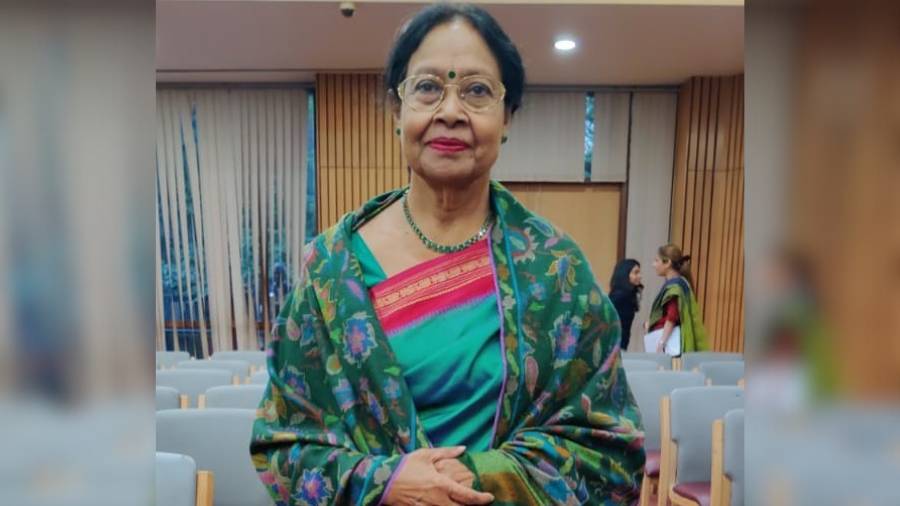
‘Chakravarti’s narrative techniques show her skill and creativity, and she has the ability to transport the readers to the sounds, smell and sights of Bengal’
Choices and consequences
Often, characters who are from different strata of society and periods go through life’s journey suffering loss and pain until self-realisation dawns as in Satwant Chachi. In the story, we see the widowed Satwant Chachi fulfil her conventional role as a mother against great odds, which includes resisting the sexual advances of her landlord. She stoically carries on her motherly duties through her life’s journey. However, once her conventional duties as a mother are over, she finds a certain freedom from societal conventions. This is a mirror contrast to the landlord, who finds it difficult to move on in life without remarrying after his wife’s death.
There are stories in the collection where the characters make certain choices and are forced to face the tragic consequences. In From an Upstairs Window, Neelanjana, the protagonist, falls from her window. Like the various reflections in a mirror, this fall is viewed differently by her husband, mother-in-law and Rahul, her lover. Despite the doctor’s report that the cause of her fall was her somnambulism “brought about by a combination of events”, the author does not put a closure to this analysis. Chakravarti weaves her philosophical insights into realistic details and leaves it to the reader to interpret.
Chakravarti is an immensely gifted writer. Her narrative techniques show her skill and creativity. Some stories are narrated by women characters like in Crooked House and Princess Poulomi, some have third-person narrators and some multiple narrators. Chakravarti’s ability to transport the readers to the sounds, smell and sights of Bengal (delicious aromas of cooking darbesh and other local delicacies tease our senses), and her elegant style make the collection a must read.
Dr Taisha Abraham is a Fellow at the Institute of Social Sciences (ISS), New Delhi, and an Associate Professor (Rtd.) at the Department of English, Jesus and Mary College, University of Delhi.
